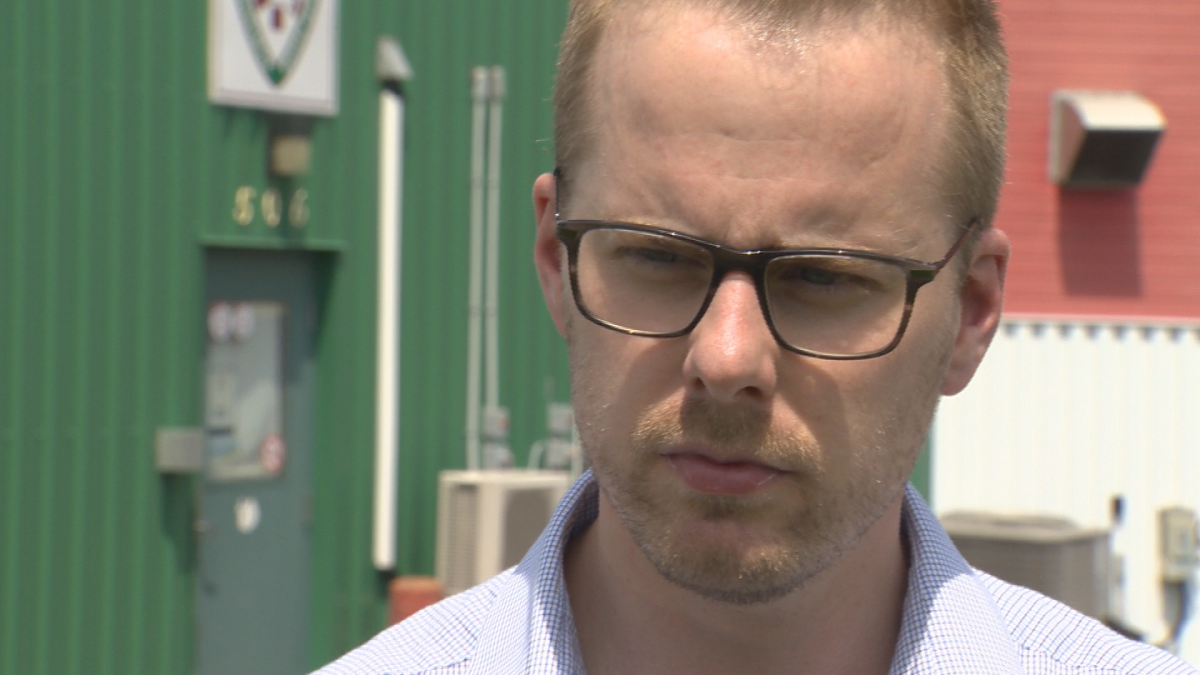Paramedics were initially categorized with unskilled labourers and craftsmen in 1972 according to Joel Mattatall, a paramedic in the Moncton area.

The chair of the New Brunswick Paramedic Reclassification Committee says since then, the job of a paramedic has changed drastically and they deserve to be in a different union with other medical professionals.
“We were janitors, the pager would go off and you would rush to a call,” Mattatall says. “But now, we have highly-skilled paramedics, right, clinicians, doing very, very acute and invasive interventions right in your living room and saving lives because of it.”
Mattatall says primary care paramedics make less money than city bus drivers, educational assistants, and much less than police officers and firefighters with a salary of just over $50,000 as of July 1, 2018.
READ MORE: ‘Very glad to be here’: P.E.I. man credits bystanders, defibrillator after on-ice collapse
But he says bargaining is one of the main components behind the classification concerns, as they currently go to the table alongside hairstylists, morgue assistants and janitorial staff.
“One of the reasons we want to be placed alongside medical professionals when we go to bargain is we feel the depths of the negotiations in a service support union don’t meet the needs of a medical professional,” he says. “That’s why government has a union dedicated to medical professionals. The collective agreement in that particular group includes things such as long-term disability.”
Paramedics felt they were making headway with government response since asking for a classification analysis two months ago, but Mattatall says they received a phone call from Health Minister Ted Flemming July 1 putting a halt to any action.

Get weekly health news
“(Flemming) said, you know what guys, there’s pushback from the premier’s office, there’s pushback from Department of Finance, you should probably consider going down another road.”
Government response
But in a statement sent to Global News late Friday, the health minister said the claims made by the committee aren’t true.
“Recently, there have been claims made by the New Brunswick Paramedics Reclassification Committee that the Government of New Brunswick would not support an analysis to see if primary and advanced care paramedics are properly classified,” the statement says. “This is not the case.”
Flemming says in the statement that the province met with the committee in May, giving members a chance to present their requests.
“At this time, the government is conducting a formal evaluation that will determine whether these paramedics are classified correctly,” the statement went on to say. “The analysis is expected to be completed in the fall.”
After hearing about the update from the province, Mattatall says he’s thrilled for all paramedics in the province.
“Though there’s obvious spin, it doesn’t hurt my feelings one bit,” he says in a text message statement. “We’ve finally been able to secure a public commitment, that an analysis will be undertaken.”
He says paramedics will anxiously await the findings of the analysis in hopes of becoming the “medical professionals (we) are.”
‘Point of exhaustion’
Darcy Cormier, a primary care paramedic who’s working to become an advanced-care paramedic, says “we find ourselves sitting in a spot where we work ourselves to the point of exhaustion.”
“Typically, in the run of a month, we tend to work around 150 hours as a full-time schedule,” he says. “Given the way things have been though, many of the medics find themselves working anywhere between 20-to-40 more hours a week on top of that.”
“You have a system that’s propped up on overtime,” Mattatall says. “I, just a few weeks ago, responded to quite a traumatic call, and as soon as I’m cleared from that call, I’m off to respond to another critical call.”
“These paramedics, they’re not only risking their lives, but they’re risking their mental health each and every day.”
READ MORE: Paramedics program to prevent unnecessary ER visits to expand in Winnipeg
According to Mattatall, up to 25 per cent of paramedics will suffer from PTSD.
Numbers obtained by Mattatall, through a Right to Information and Protection of Privacy Act request, shared with Global News show in 2018, about one-tenth of paramedics across the province (106 of 973) were off receiving workplace compensation benefits.
The request also says over $8-million was paid out in 2017 for 216,163 hours of overtime.
That year, Ambulance New Brunswick hired a total of 56 paramedics, but 32 resigned.
Roughly half of those, 14, who resigned, joined ANB as casuals, the document says.











Comments
Want to discuss? Please read our Commenting Policy first.